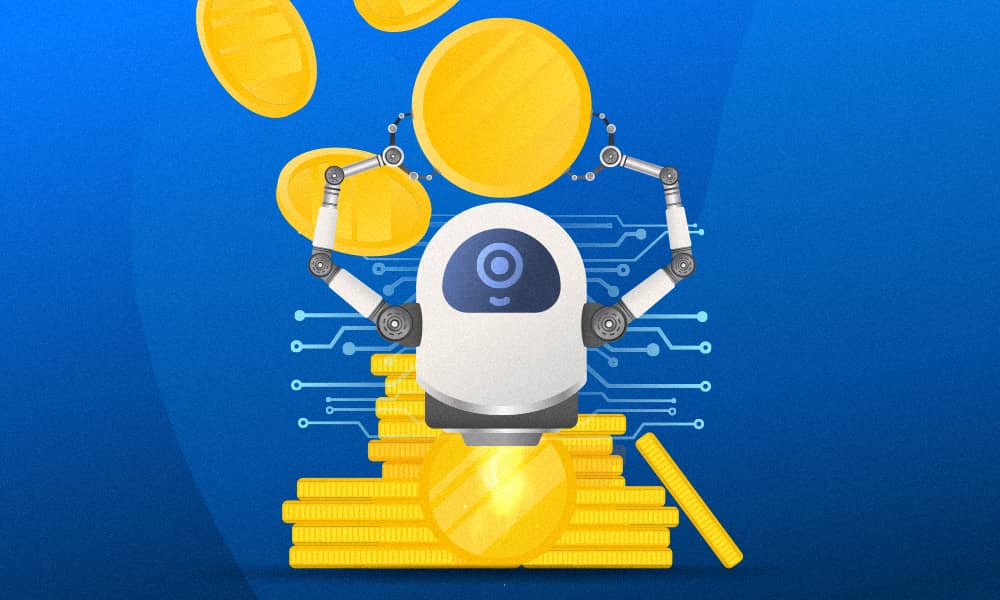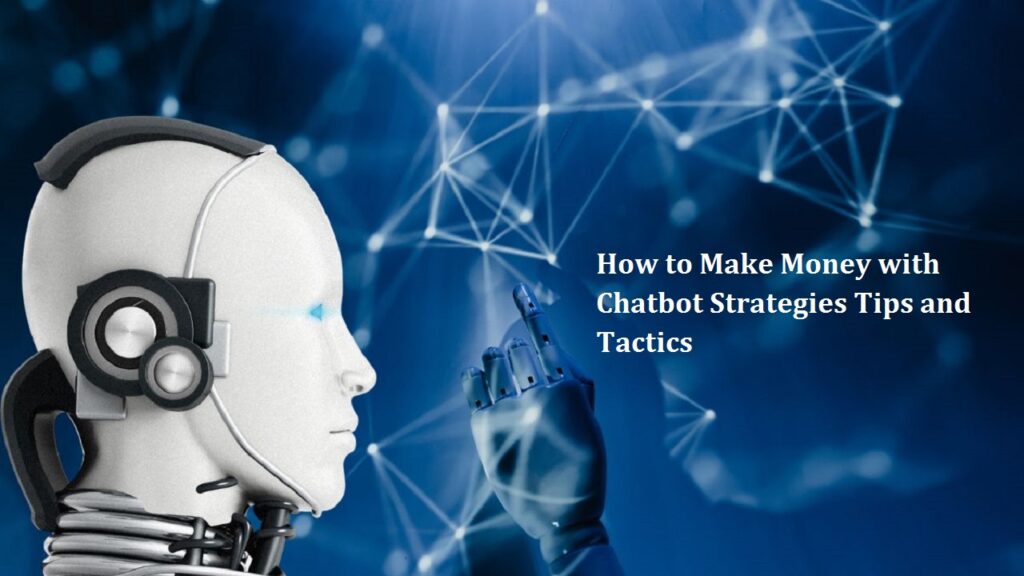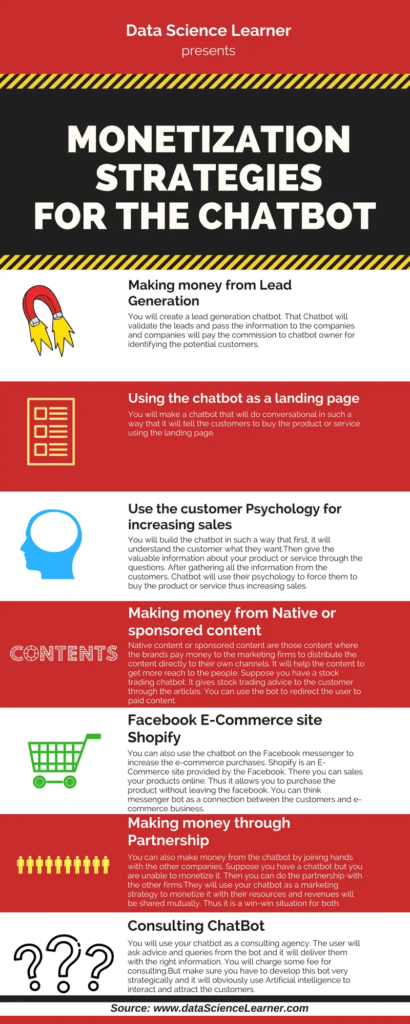Introduction to AI Monetization
As an entrepreneur, I’ve understood that the advent of AI has changed, for the better(bold), the way businesses function. With solutions such as automated customer service handling, predictive analytics, and trend forecasting, AI has become an integral part of advancing many industries. Businesses are now identifying the potential of mastering the monetization of AI to ensure they have the edge over their competitors in today’s market.
Understanding Artificial Intelligence
As I delved deeper into my entrepreneurial journey, I realized that the key to implementing AI into a business model effectively is first understanding it(bold). AI, or artificial intelligence, is a component of computer science that prioritizes the creation of intelligent machines that work and react like humans. Although the concept of AI may seem advanced and complex, its potential to improve efficiency and productivity in business is unmatched.
The Role of AI in Various Industries
I’ve observed how AI has been monumental in various industries such as healthcare, where it assists in making more accurate diagnoses, and in the automotive industry, where self-driving car technology is becoming more prevalent. However, the significant impact can be seen in e-commerce businesses, where chatbots are revolutionizing customer service and enhancing business cash flows.
The Evolution of AI in Online Business
I started implementing AI in my online businesses and saw firsthand how it has evolved over the years. Chatbots were merely a novel concept a few years ago, but now, they are integral for successful online businesses. These chatbots have not only taken over routine customer service queries but have also become sales agents, guiding customers through the sales process and even upselling products and services. Through the monetization of AI, businesses are now multiplying profits while reducing operational costs.
The journey of mastering AI monetization is challenging but full of potential. As we experiment and learn, businesses are set to become more efficient, productive, and profitable.

This image is property of miro.medium.com.
Unraveling the Potential of Chatbots
It’s no secret that technology has revolutionized the way we conduct business. One such game-changer is the advent of chatbots, which hold unlimited potential in enhancing customer experience and promoting business growth. As a business owner, I am constantly looking for ways to boost my company’s cash flow. With this in mind, I’d like to explain how the concept of chatbots and AI technology contribute to this process.
The Concept and Efficiency of Chatbots
Technically speaking, chatbots are programs powered by artificial intelligence (AI) that mimic human conversation. They’re incredibly efficient, able to respond to multiple enquiries simultaneously. However, their potential extends far beyond mere efficiency. Armed with AI, chatbots are capable of understanding and processing complex requests, providing personalized responses in real-time. This level of interaction not only minimizes manual involvement but can also greatly enhance customer engagement with your business.
Importance of Chatbots in Enhancing Customer Experience
Now, let’s talk about customers. They are the lifeblood of any business. Therefore, the importance of enhancing their experience cannot be overstated. Chatbots play a significant role here. By providing quick, personalized responses, chatbots can satisfy customer queries promptly. This immediate response capability can keep customers involved, thereby improving their overall experience with your company.
Possibilities of Chatbots in Business Growth
Looking at the bigger picture, chatbots can significantly contribute to business growth. With every interaction, valuable customer data is collected. This information can be analyzed to uncover customer patterns or trends, providing businesses with invaluable insights. Leveraging these insights can result in improved product offerings and marketing strategies, leading to better customer retention and, ultimately, increased cash flow.
From chatbots to cash flow – it’s a journey of capitalizing on the capabilities of AI. As business landscapes evolve, it’s clear that AI strategies, specifically chatbots, will be integral to monetizing efforts.

This image is property of assets-global.website-files.com.
Key Strategies for Effective AI Monetization
You must be wondering how to transition from the fascinating world of artificial intelligence (AI) and chatbots to measured, tangible cash flow – monetizing AI. Here, we’ll delve into several strategies for effective AI Monetization.
Identifying Potential Areas for AI Implementation
The initial step in this process is to discern the high-impact areas suitable for AI adoption in your business. AI can transform numerous business dimensions with efficiency, from user experience enhancement to operations optimization. It can transform everyday business operations, merchandise management, customer service, etc., offering the possibility for profound cost savings and revenue generation.
Exploring Customer-centric AI Solutions
Perhaps the most strategic area to consider monetizing AI is around the customer experience. Customer-centric AI solutions, like chatbots, can be utilized for 24/7 customer support, answering frequently asked questions, or personalizing shopping experiences online. Harnessing AI to provide outstanding and personalized customer experiences not only meets customers’ expectations, but it can often translate into increased revenue.
Investing in High-value AI Technologies
Investing in AI technologies requires more than just buying data scientists. Training and implementing AI, especially high-value AI technologies with great potential to improve ROI, like machine learning or data analytics tools, should also be at the forefront. For sure, these demands significant investment, but the potential payoffs could be huge, from increased efficiency and productivity to expanded capabilities.
By concentrating on these strategies, you can start to see how your investments in AI can transition from simply interesting or potentially useful applications to actual money-making assets in your business. AI monetization is not just a buzzword. It’s a valuable opportunity serendipitously dropped in our hands by the rapid advancements in technology.

This image is property of openaimaster.com.
Case Studies: Successful Monetization of AI
In the high-tech digital world of today, artificial intelligence (AI) has proven to be instrumental in delivering robust and automated solutions across different industries. In this post, we will look into case studies of how businesses have successfully managed to monetize AI.
Chatbot-driven E-commerce: A Game Changer
Let’s start with e-commerce, the pioneer industry of AI. AI-powered chatbots, equipped with natural language processing abilities, can converse intelligently with customers, helping businesses to streamline the customer engagement process while reducing manpower costs. For example, beauty giants like Sephora and Kiehl’s employ chatbots to provide product recommendations based on customer queries, effectively upselling products.
Profitable Transformation with AI in Healthcare
AI is not only grandly transforming e-commerce but the healthcare sector as well, where it’s literally saving lives while making money. Through predictive analytics, AI can forecast health risks and help effectively manage chronic diseases. Telehealth platforms have capitalized on this, using AI to provide remote patient monitoring and care, saving on operational costs, and enhancing patient outcomes.
AI in Banking: A Leap Towards Digital Excellence
Banking is another sector reaching new heights in digital excellence with AI. Take Fraud Detection for example, banks use AI to recognize suspicious activities in real-time, so fraud can be stopped before it happens, resulting in lower financial losses. Moreover, AI chatbots are helping customers do banking through simple conversations, providing an enhanced customer experience and reducing the load on human customer service representatives.
Each case study paints a picture of how the strategic application of AI can result in impactful business transformations. The key takeaway here is how the integration of AI can lead to cost reductions, improvement in service delivery and customer engagement, ultimately contributing to robust cash flow and higher profitability.
Challenges and Solutions in AI Monetization
The path from chatbots to cash flow isn’t always smooth, but before delving into strategies for monetizing AI, let’s talk about some substantial challenges that might arise in your journey. These challenges usually revolve around data privacy, managing bias, and technical issues. However, knowing these challenges is only half the battle; the real victory lies in overcoming them.
Dealing with Data Privacy and Security Issues
AI systems are heavily reliant on data, and where data flows, privacy concerns follow. The use of personal data fuels the fear of misuse, leading to violations of user privacy. In response to these concerns, governments worldwide have launched regulations like GDPR in the EU. To monetize AI effectively whilst handling data privacy, businesses need to ensure they are transparent about data usage, adopt robust security measures, and comply with all relevant regulations. Hence, balancing data usage with privacy will be a critical area of concern.
Understanding and Managing Bias in AI
AI systems learn from the data they are trained on, so if the data is biased, the AI outcome can be biased too. Bias in AI could harm brand reputation and lead to legal issues. For effective monetization and fairness, finding and correcting these biases is crucial. Using diverse data sets for training and incorporating fairness into model selection and validation can significantly help in decreasing AI bias.
Addressing Technical Challenges in AI Implementation
Implementing AI can be a daunting task due to its complexity. It involves choosing the right model, ensuring smooth integration with existing systems, and maintaining it efficiently. Overcoming these challenges requires a diverse and skilled tech team and choosing an AI model that is best suited for your business needs.
By tackling these challenges head-on, businesses can effectively monetize their AI strategies, turning AI tools like chatbots into powerful engines of growth.

This image is property of i0.wp.com.
Chatbots to Cash Flow: Achieving Sustainable AI Monetization
Imagine a world where intelligent software can interact with customers, analyze trends in your industry and even search for ways to optimize your business performance. Well, that world is no longer a figment of imagination but a reality today. Moreover, AI-driven technologies like chatbots are not only boosting efficiency but also opening up new avenues to generate revenue. In this post, we’ll explore viable strategies to achieve sustainable AI monetization in your business.
Establishing a Long-term AI Strategy
Developing a future-proof business model around AI is the first step towards sustainable monetization. Basically, I believe that your AI’s value proposition needs to harmonize with your overall business strategy. This not only includes direct income from AI products or services but also indirect earnings from improved processes and customer satisfaction.
Optimizing AI Performance for Business Excellence
Monetizing AI isn’t just about jumping on the AI bandwagon but shaking up your business model to find lucrative AI applications. I’d advise taking time to evaluate your AI performance. Be ready to tweak and adjust until you achieve optimal results. Also, it’s crucial to establish metrics that quantify success. By tracking these metrics, you can assess areas that need improvement and adopt strategies that maximize output.
Ensuring Continuous Learning and Improvement in AI Applications
Sustainable AI monetization demands continual learning and improvement in AI applications. Adopting a growth mindset is key to this. This means present shortcomings in AI applications should serve as lessons for future improvement rather than deterrents. Regular training, performance updates, and continually learning from data are aspects that foster continual growth in AI applications.
Investing in AI is undoubtedly a strategic move. However, to transform it from an operational tool to a revenue generator, you need a well-thought plan. Hopefully, these steps will aid you in setting up a path to monetize your AI strategy effectively.
The Ethics of Monetizing AI
In recent times, the artificial intelligence (AI) revolution has changed the way businesses operate, creating numerous opportunities for monetization. However, its ethical aspect cannot be undermined.
Issues Over AI Inequality
The first ethical issue I want to address is AI inequality. The inequality in question is in terms of access, education, and influence. Those companies with greater resources can invest in advanced AI technology, creating a significant disparity between the well-resourced and the less-resourced. That’s why it’s vital to foster inclusivity in AI development and usage.
Creating Ethical Standards for AI Monetization
Next on the table is the pressing need to establish ethical standards for AI Monetization. The goal should be to prioritize human rights and privacy, reducing potential harm while optimizing the benefits AI can provide to various industries. This would also involve regulating and monitoring AI technologies to curb misuse and promote accountability. Because let’s face it, unchecked AI can be a slippery slope to breach of user privacy and other unscrupulous practices.
How Companies Can Practice Responsible AI Monetization
Lastly, the big question: how can companies practice responsible AI monetization? For starters, involve a diverse range of developers to create AI that is devoid of bias and can be widely used. Companies should also focus on transparency: letting consumers know how their data is being used, why it’s being used, and giving them the option to opt-out if they wish.
Monetizing AI is inevitable as we progress, but prudence lies in doing so ethically because the future of AI should be one that empowers all and sundry, rather than dividing us even further.

This image is property of Amazon.com.
Trends and Future Perspectives in AI Monetization
Artificial Intelligence has morphed from a backdrop for sci-fi movies into a critical component of modern business strategy. The advent of AI and the Internet of Things (IoT) has opened up new opportunities and channels for monetization. In the same vein, it’s becoming apparent that businesses can no longer afford to ignore the value presented by technologies like autonomous vehicles and big data in their revenue optimization tactics.
The Advent of AI and Internet of Things
AI, with the help of IoT, has dived head first into the business world. This combination has revamped the way businesses operate, aiding in the realization of things that may have never been thought possible before. IoT makes use of sensors and other data-gathering devices to connect physical objects to the digital world. With AI in the picture, these devices don’t just take readings, they learn, adapt, and ultimately increase business efficiency and productivity.
The Future of Autonomous Vehicles and AI
Autonomous vehicles are an exciting tangent of IoT, thanks to advancements in AI. The concept of driverless cars is not just something we see in futuristic movies anymore; it’s becoming our present-day reality. This technology stands to revolutionize the transportation industry, and the potential for monetization is immense.
AI and Big Data becoming Indispensable in Businesses
The potential value of big data is no secret, but managing that volume of data and turning it into usable information has always been the challenge. Enter AI. By using AI to process and analyze big data, businesses are able to extract value like never before, effectively converting intricate data into actionable strategies. AI, in reality, stands at the center of converting data to dollars, and is now quite indispensable in businesses.
From humble chatbots assisting in customer service to the promising potential of an AI-driven economy, it’s evident that we are just scratching the surface of how far this technology can go. As we stand at the cusp of this unprecedented opportunity, businesses across the globe are bound to rethink and realign their monetization strategies to harness the power of AI.
Impact of AI Monetization on Employment and Economy
We are witnessing a transformative era of digital evolution where AI stands as the pivotal player. Its rapid proliferation and the ongoing advancements are profoundly impacting employment and shaping the global economy.
How AI is Shaping the Employment Landscape
As I see it, Artificial Intelligence isn’t just a job terminator as it’s often portrayed in certain dystopian narratives. Sure, there are professions that are becoming obsolete, however, it is my firm belief that AI is simultaneously creating diverse opportunities for new age jobs. The development of AI applications and platforms alone necessitates the workforce skilled in AI, data analysis, and machine learning. Experts are required for the design, coding, implementation, and maintenance of AI systems. Additionally, AI-powered jobs don’t stop at technical positions. Market research analysts, salespeople, UX designers are in high demand in the AI industry. In essence, AI is creating more jobs than it’s replacing.
AI and its Influence on the Global Economy
When it comes to the global economy, the financial magnitude of AI is simply unprecedented. AI-powered technologies such as automation, machine learning, and robotics, greatly increase productivity and efficiency, leading to economic growth. Chatbots, for instance, are revolutionizing customer service, reducing costs and increasing customer satisfaction which inevitably converts to higher profits. AI developments in sectors such as healthcare, transportation, and agriculture among others, promise substantial economic impacts. With AI at full thrust, we are expected to witness a substantial rise in global GDP.
So, despite the feared job losses, the economic gain AI technologies promise is a cause for optimism. The critical task for us now lies in developing strategies that ensure the economic benefits of AI are widely shared.
Artificial Intelligence: A Catalyst for Innovation
Artificial Intelligence (AI) has created a plethora of opportunities for businesses in all sectors. It’s a foundational change that is revolutionizing industry norms, transforming traditional business practices, and providing innovative tools to drive efficiency and effectiveness.
Revolutionizing Industry Norms Through AI
Let me start with a fascinating example: Chatbots. Today, AI-powered chatbots have become an integral part of many customer service operations. These intelligent assistants can handle multiple customer queries simultaneously, provide instant responses, and trigger human intervention when necessary. Apart from streamlining customer support, they also collect a vast amount of data. This data can be used to refine product offerings and develop personalized marketing strategies. The result is not only a superior customer experience, but also increased sales figures. And the best part? All this magic coming from lines of code and machine learning algorithms! AI doesn’t just revolutionize customer interaction; it makes possible new business models, paving the way for businesses to monetize their AI investments.
How AI is Transforming Traditional Business Practices
AI is not just about automating mundane tasks; it’s about how these technologies can change the way we do business. With AI, businesses can predict market trends, personalize services, increase operational efficiency, and transform decision-making processes. It’s even impacting areas you wouldn’t necessarily expect, like finance – innovative AI tools are being developed, designed to help businesses maintain cash flow and make more informed financial decisions. These AI-powered tools analyze past transactions and market patterns to offer forecasting that could have a profound effect on a company’s bottom line.
In essence, monetizing AI is not just about making money from AI products or services; it’s about leveraging AI to create value, grow businesses, and ultimately turn those operations into cash. Harnessing the potential of AI could take your business to new heights. The possibilities are endless when you embrace the AI revolution.
Conclusion: Monetizing AI – The Road Ahead
In this information-driven era, the road to monetizing AI is not some distant mirage but a very real pathway that businesses can traverse. From automated chatbots providing tailor-made customer experiences to sophisticated models projecting future cash flows, AI-driven technology can be a profitable venture for online businesses.
Summarizing the Power and Potential of AI Monetization
We’ve covered a broad spectrum of strategies that can be used to monetize AI effectively. But what it all boils down to is recognizing the immense potential of AI technology. It’s about harnessing the cutting-edge advancements to build scalable solutions that cater to modern-day problems – solutions that can generate a consistent revenue stream by offering indispensable value to consumers.
Encouraging Businesses to Leverage Benefits of AI
I urge businesses to not just view AI as some fancy tech appendage, but understand the real benefits it brings to the table. AI not only automates tedious tasks but also provides valuable insights gleaned from customer behaviors and marketing trends. By leveraging AI technology, businesses can drive efficiency, improve customer satisfaction, and ultimately, magnify profits.
Emphasizing on the Need for Ethical and Sustainable AI Practices
However, in the mad rush to monetize AI, ethics and sustainability should never be sidelined. It’s crucial that we uphold user privacy, ensure transparency, and avoid discriminatory biases in our AI programs. Because sustainable and ethical AI practices are not just moral obligations, they’re also good for business. In the long run, companies that put ethics at the core of their AI monetization strategies are more likely to amass user trust, a critical commodity in the digital marketplace.
In the final analysis, intelligently monetizing AI is about striking a fine balance – between revenue generation and ethical considerations, between technological innovation and customer value.

